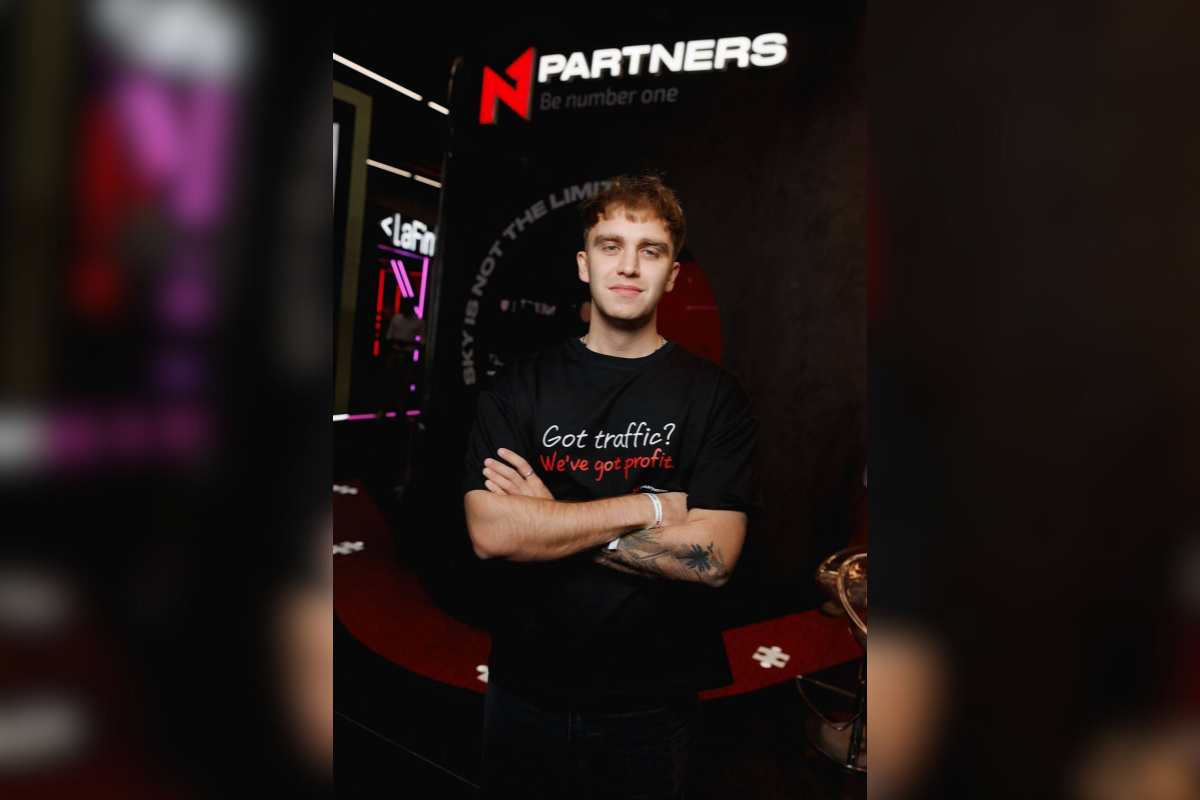News
5 Important Facts About New Zealand’s Gambling Market

Whenever there is a focus on the gambling market within the Asia-Pacific region, Australia, which is one of the largest gambling markets in the world, tends to hog all of the attention.
As in many other aspects, Australia’s quieter cousin New Zealand is often wrongfully overlooked by industry pundits, online casino operators, and affiliates. However, they can no longer afford to do so.
New Zealand’s gambling market might not be as large as Australia’s, but it is rapidly becoming a major consumer market that is on track to become a significant global industry player. To help illustrate this point further, here are five essential facts that you need to know about New Zealand’s gambling market.

Source: Unsplash
1. A Huge Portion of New Zealanders Gamble
One fact that is often crucially overlooked is the sheer number of New Zealanders that regularly play real-money casino games. According to some of the most recent studies, a whopping 80% of New Zealanders, equal to about 3.8 million people, gamble on a regular basis. The bulk of these gamblers stick to lotteries, but this is changing fast.
2. Overall Gambling Spend Per Head is Rising
Not only is the number of gambling fans in New Zealand high, but the amount they actually spend is high, and rising. Last year, New Zealanders spent around $2.4 billion, or about $648 per head. This figure is a full $49 million higher than the year before, which, in turn, was significantly higher than the year before that. It is clear that the gambling market is going through an unprecedented growth phase.
3. Online Competition is Heating Up
While there are only a small handful of land-based casinos in New Zealand, the level of online competition is growing rapidly. Among the estimated 1300 online casinos that offer services in New Zealand, the biggest market player is the online platform SkyCity, which offers online pokies, blackjack, poker, roulette, and even live casino games to players across the country. Expect online operators to increase their marketing efforts in NZ in the years ahead.

Source: Unsplash
4. Gambling Revenues Often Go to Charitable Causes
Few people realize that, as part of New Zealand’s unique gambling laws, many of the revenues from casino gaming go straight to charitable causes. Under the law, all public gaming in New Zealand is expected to return profits to the community. Such profits are used to house homeless people in cities such as Auckland, fund new infrastructure such as transport and convention centres, and pay for various other non-commercial causes. Another country that has a similar system in place is Finland, a nation that New Zealand is often compared to.
5. Slots Are By Far the Most Popular Casino Games
Finally, it is important for industry watchers to know that the most popular type of casino game in New Zealand by far is the pokies. Similar to the situation in Australia, pokies are found in bars, pubs, and hotel lobbies across the country, which has contributed to their popularity. Pokies also have a role in the culture of New Zealand, in much the same way that they do in Oz. The pre-eminence of pokies is unlikely to be challenged in the near future.
These are the facts that any industry pundit should know about gambling in New Zealand.
News
N1 Partners’ Sky Dining Event for Top Partners at SiGMA Eurasia

AIBC Eurasia in Dubai, which once again brought together top companies from the iGaming industry, became the first major event for N1 Partners after the grand show event in Barcelona celebrating the end of the N1 Puzzle Promo. So the conference in Dubai was a great opportunity to discuss plans for 2026 and set traffic priorities together with the N1 team.
Of course, N1 Partners couldn’t leave their top partners without a surprise. That’s why the affiliate program organized an exciting gastronomic experience in Dubai – Dinner in the Sky – for the Seven Group media buying team!
Here’s how it went 👇🏼
Listed by Forbes among the world’s 10 most unusual restaurants, Dinner in the Sky offers one of the most unique gastronomic experiences on the planet – a dinner 50 meters high with panoramic views of Dubai. It was exactly this experience that the N1 Partners affiliate team chose to invite their partners from the Seven Group media buying team.
“For us, events like these are more than just gatherings – they’re an opportunity to build truly genuine partnerships, grow closer, and better understand our partners. Dinner in the Sky was the perfect format to discuss plans, exchange ideas, and simply share vivid emotions with our top partners in a relaxed, informal setting. Moments like these lay the foundation for strong, long-term collaborations,” comments Alexa Bond, Head of Affiliates at N1 Partners.
Dinner highlights:
- top partner team
- 90 minutes
- 50 meters above the ground
“We’d like to thank N1 Partners for the invitation to a business dinner where we were able to connect and spend time in a truly pleasant atmosphere. For us, this is a great sign. First, it shows that our traffic is highly valued by N1 Partners. Second, it proves that our partner is committed to developing business relationships through trust and personal interaction.
Many thanks to the N1 Partners team for the warm welcome and attention to detail. We were absolutely delighted and took away so many positive emotions that we’ll be bringing back with us from Dubai!” — shared the Seven Group team.
Getting invited to an exclusive Sky Dining event by N1 Partners is the result of consistent and effective collaboration with the affiliate program. Strong performance deserves a premium approach and special attention to top partners. At N1, partnerships are built on trust, transparent terms, and fast communication – enabling not only traffic scaling, but also going beyond standard cooperation to create truly unique experiences.
“We’ve been working with N1 Partners for almost a year, with the main traffic coming from Google PPC, and during this time we’ve managed to reach solid volumes. Integration is fast, data exchange is stable, and the team is always available – without unnecessary bureaucracy and with full involvement in the processes. In such a dynamic line of work, this is especially important.
We were happy to meet the N1 team offline in Dubai in this format and receive a gift that only подтверждает that our partnership is getting stronger,” shared the Seven Group team.
Catch N1 Partners at the upcoming iGaming conferences worldwide:
- 14+ casino and sportsbook brands with Reg2Dep up to 70%
- 10+ Tier-1 GEOs
- CPA up to €700 and RevShare up to 45% + NNCO for top partners + hybrid models
See you soon!
News
Top Sports Events & Promos by N1 Partners: Where to Drive Tier-1 Traffic in February

N1 Partners expands its sports traffic capabilities. Betting is now available across three brands within the affiliate program’s portfolio: alongside the flagship sports product N1 Bet, RollXO and Lucky Hunter have joined the lineup.
For partners, this opens up new opportunities to work with Tier-1 sports traffic. You can scale volumes on a dedicated betting product while simultaneously running sports traffic on casino brands with already strong conversion rates. This approach allows affiliates to diversify traffic flows, reduce reliance on a single product, and strengthen key performance metrics by combining sports, casino, and seasonal promotional mechanics.
Why Seasonal Events Matter When Driving Traffic
In practice, the most consistent conversion results are achieved when traffic launches are aligned with seasonality, key news hooks, and behavioral peaks in player activity.
February offers a particularly strong combination of factors:
- a packed schedule of top football leagues and tournaments
- the Winter Olympic Games
- seasonal holidays, including Valentine’s Day
- increased emotional engagement from players
During such periods, users are more likely to make deposit decisions, engage with promotions, and return to the product. Timing and the right contextual hook have a direct impact on overall performance.
To simplify campaign planning and help partners make the most of this period, the N1 Partners team has prepared a selection of key sports events and active promotions that are well suited for driving sports traffic.
Key Sports Events in February
11.02.2026
Soccer | Italy, Coppa Italia | Quarter-final | Bologna – Lazio
Ice Hockey | Olympic Games | Slovakia vs Finland
Soccer | England, Premier League | Manchester City – Fulham
Soccer | Germany, DFB Pokal | Quarter-final | Bayern Munich – RB Leipzig
Basketball | NBA | Houston Rockets – LA Clippers
Soccer | CONMEBOL, Copa Libertadores, Qualification, Quarter-finals | 2-nd legs
12.02.2026
Ice Hockey | Olympic Games | Czech Republic vs Canada
Soccer | England, Premier League | Brentford – Arsenal
Basketball | NBA | Orlando Magic – Milwaukee Bucks
Basketball | EuroLeague, Regular Season | Round 28
Rugby League | Super League (England, France) | Regular Season
13.02.2026
Ice Hockey | Olympic Games | Canada vs Switzerland
Basketball | NBA | Oklahoma City Thunder – Milwaukee Bucks
Handball | Germany, Bundesliga | Next Round
14.02.2026
Ice Hockey | Olympic Games | USA vs Denmark
Soccer | England, FA Cup | 1/16-finals
Soccer | Germany, Bundesliga | Werder Bremen – Bayern Munich
Rugby Union | France, Top 14 | Round 17
Handball | Spain, Liga ASOBAL | Next Round
Basketball | Spain, Liga ACB | Round 20
15.02.2026
Ice Hockey | Olympic Games | Switzerland vs Czech Republic
Soccer | Italy, Serie A | Inter – Juventus
Soccer | Italy, Serie A | Napoli – AS Roma
Soccer | Italy, Serie A | Lazio – Atalanta
Soccer | Spain, LaLiga | Girona – Barcelona
Soccer | Spain, LaLiga | Real Madrid – Real Sociedad
Soccer | France, Ligue 1 | Marseille – Strasbourg
Soccer | France, Ligue 1 | Rennes – PSG
Basketball | NBA | ALL-Star
Tennis | WTA 1000 Dubai, United Arab Emirates | Dubai Duty Free Tennis Championships
Active Promotions Across N1 Partners Brands
To boost player activity and support conversion rates during peak dates, N1 Partners is launching seasonal Valentine’s Day promotions across key brands. These campaigns provide partners with additional leverage when driving traffic and engaging users.
Valentine’s Advent Calendar (N1 Bet, RollXO)
Period: 13.02–17.02
Daily rewards available for participants over five days:
- 13.02 Love Box: prize up to €15,000
- 14.02 Valentine’s Riddle Offer: 100% bonus up to €500 + 150 FS
- 15.02 Sunday Challenge: 50% bonus on the 3rd deposit
- 16.02 Road to Free Spins: 30 FS for every €350
- 17.02 Fortune Lottery Series: prize pool €63,000
Cupid Mailbox Lottery (Lucky Hunter)
Period: 09.02–14.02
Prize pool for 28 winners: trip to Paris + €6,400 + 1,400 FS
Why This Matters for Partners
Seasonal promotions and event-driven campaigns help partners address several key challenges when working with Tier-1 traffic:
- encourage higher average deposits
- increase LTV through repeat engagement
- sustain activity during periods when CR typically declines
- integrate smoothly into creative bundles and ad formats
- strengthen the emotional appeal of offers through holidays and major events
In a highly competitive environment, these product-driven initiatives help partners maintain stable and predictable performance.
What Partners Should Do Now
February combines major sports events, seasonal triggers, and strong promotional mechanics into a single high-potential window.
Drive traffic to key sports events and Valentine’s Day promotions across N1 Partners brands: N1 Bet, RollXO, and Lucky Hunter.
The N1 Partners team is ready to provide up-to-date promotions, analytics, and dedicated support tailored to your traffic volumes.
Join N1 Partners
N1 Partners provides everything affiliates need to stay ahead: high-converting products, ongoing analytics with optimization recommendations, and hands-on support from managers focused on long-term performance.
N1 Partners is more than an affiliate program. As a multi-brand affiliate platform and direct advertiser, the company unites 14+ casino and betting brands, operates across Tier-1 GEOs, delivers Reg2Dep rates of up to 70%, and offers competitive deals for top partners — CPA up to €700 and RevShare up to 45%. Trusted by 14,000+ partners, N1 Partners is recognized for its transparency, flexibility, and partner-first approach — where people and communication quality remain the foundation of long-term success.
News
N1 Faces: Dmitry Filippov — What’s Behind Sustainable Growth in Affiliate Marketing?

In iGaming, strong results are rarely accidental. Sustainable growth, scaling, and long-term partnerships are almost always driven by someone who can build processes, stay focused, and make decisions in a fast-changing environment.
In the new episode of N1 Faces, the N1 Partners team introduces Dmitry Filippov, Affiliate Team Lead (SEO) — a specialist working at the intersection of strategy, team leadership, and partner relationships. Dmitry has grown from traffic-focused roles into managing an affiliate direction, and today he’s responsible not only for performance, but also for the way the team builds communication and trust with partners.
Dmitry Filippov
Affiliate Team Lead (SEO), N1 Partners
How did you get into affiliate marketing, and when did you realize this was the field you wanted to grow in?
I first discovered affiliate marketing back in university and joined a team as a junior buyer in the nutra vertical. Since then, I’ve probably created a thousand variations of creatives for “miracle pills” — for potency, joints, blood vessels, you name it.
After graduating, I applied to around 400 jobs and eventually got an offer as a PR specialist in the Forex vertical. But even during my probation period, I realized I wanted to develop the affiliate direction inside the company.
Affiliate marketing brings together everything I genuinely enjoy: marketing, creativity, speed, people — and of course, the freedom to travel.
What brought you to N1 Partners, and what was the deciding factor?
At the time, I was exploring new opportunities for about two months while working as Head of Affiliate at a gambling affiliate network — and honestly, N1 Partners felt like love at first sight.
What made the difference was the communication and the mindset of our Head of Affiliates, Alexa Bond. After the first conversations, I immediately knew I wanted to work here — and I haven’t regretted it for a second.
I’m grateful for every team I’ve worked with along the way, but this one is hands down the best.
As a Team Lead, what’s harder: scaling team performance or scaling the team itself?
In reality, it’s always a combination. As the team grows, results grow with it. What matters most to me is that people develop both vertically and horizontally — in skills, responsibility, and confidence.
At the same time, the market is full of strong talent: people come in with great ideas, experience, and fresh perspectives.
Both challenges — growing the team and growing performance — are equally demanding, but also equally exciting. Especially because our product side is very strong: the brand portfolio and GEO coverage are constantly expanding, which makes a huge difference for affiliate managers.
How do you support the growth of managers within your team, and what skills matter most in the first few months?
Even at the interview stage, I focus primarily on soft skills. Early on, it’s crucial for me to see energy, initiative, and the ability to absorb information quickly.
The first few months are always about adaptation. And here, the key factor is motivation. Without the right onboarding foundation, results won’t follow — which is why I put a lot of emphasis on that stage.
How do you deliver tough feedback while keeping motivation and strong working relationships?
The most important thing is staying objective.
I give tough feedback quite often, but I do it in a friendly way. In most cases, it works more as a push and a motivator than as pressure.
The only people who never make mistakes are those who don’t do anything. For me, mistakes are part of the job. What matters is how a person responds and fixes the situation. A leader’s role is to explain things in a way that doesn’t kill initiative or the desire to grow.
What helps you stay balanced and clear-headed during high-pressure periods?
Travel and sports.
I played football for 10 years, but had to stop due to an injury. Now I occasionally compete at an amateur level in mixed martial arts, and in my free time I play padel.
As for travel — it’s basically an addiction. I plan my next trip while I’m still on the current one. And if I don’t have anything scheduled, the world feels about 10% less bright.
If you weren’t in iGaming…
To be continued.
But seriously — I’d still be somewhere close to this world: either in a related industry or in marketing overall. I genuinely enjoy working in fast-moving environments where things constantly evolve and every month brings new challenges.
Top-3 Blitz
Which skills will increase the value of an affiliate manager the most in the coming years?
- Speaking multiple languages (second, third, and beyond)
- Using AI as a practical tool
- Strong numbers and analytics mindset
What should an affiliate pay attention to when choosing between several affiliate programs?
- How the company shows up in the media and communicates publicly
- Products and GEOs: what exactly is offered, and where it performs
- The team: checking LinkedIn and seeing who’s inside — it matters when the people around you are strong drivers and motivators
What trends will impact the iGaming industry the most in 2026?
- AI: not a replacement, but a powerful assistant. Those who learn to use it as an ally will stay on top. In SEO specifically, there’s no need to panic — everyone will adapt, including to Google AI Overviews.
- Smaller GEOs: they will become increasingly important — often with more flexible regulation and stronger average deposits.
- Consolidation: the trend toward teams merging into holdings will continue, and the market will keep consolidating.
Join N1 Partners
Partners who want to discuss a launch, explore tailored terms, or test an offer can reach out to Dmitry directly.
N1 Partners provides everything affiliates need to stay ahead: high-converting products, ongoing analytics with optimization recommendations, and hands-on support from managers focused on long-term performance.
N1 Partners is more than an affiliate program. As a multi-brand affiliate platform and direct advertiser, the company unites 14+ casino and betting brands, operates across Tier-1 GEOs, delivers Reg2Dep rates of up to 70%, and offers competitive deals for top partners — CPA up to €700 and RevShare up to 45%. Trusted by 14,000+ partners, N1 Partners is recognized for its transparency, flexibility, and partner-first approach — where people and communication quality remain the foundation of long-term success.
-

 News2 weeks ago
News2 weeks agoGentoo Media releases Q4 2025 trading update, provides preliminary 2026 guidance and announces bond refinancing process
-

 Conferences2 weeks ago
Conferences2 weeks agoAff.Tech Wraps Strong ICE & iGB Affiliate, Earns AIBC Eurasia Shortlist
-

 Press Releases1 week ago
Press Releases1 week agoDigicode Announces the Launch of DigerClick – a Fully-Owned, Scalable Affiliate System for Growth-Driven Businesses
-

 Affiliate Success2 weeks ago
Affiliate Success2 weeks agoReferOn Shortlisted for “European Corporate Services Supplier” Category at EGR EUROPE Awards 2026
-

 News2 weeks ago
News2 weeks agoCreatives That Overcome Pain Points: Affiliate Case Studies By N1 Partners
-

 News1 week ago
News1 week agoLevel Up in Barcelona: N1 Partners Puzzle Promo Grand Final Recap
-

 News1 week ago
News1 week agoLEON.BET RENEWS AS OFFICIAL INTERNATIONAL PARTNER FOR 2026
-

 News1 week ago
News1 week agoMeet N1 Partners at SiGMA Eurasia in Dubai























